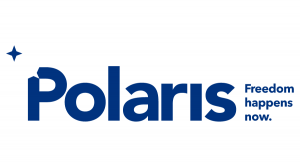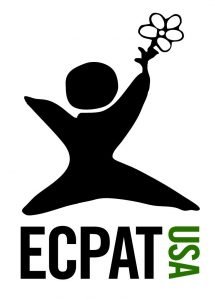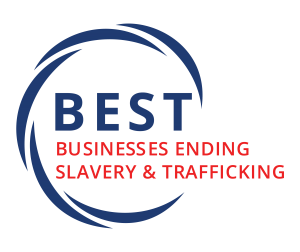HUMAN TRAFFICKING RESOURCES

Polaris is a leader in the global fight to eradicate modern slavery. Named after the North Star that guided slaves to freedom in the U.S., Polaris systemically disrupts the human trafficking networks that rob human beings of their lives and their freedom. Our comprehensive model puts victims at the center of what we do – helping survivors restore their freedom, preventing more victims, and leveraging data and technology to pursue traffickers wherever they operate.
Learn More >>

ECPAT-USA
ECPAT-USA is the leading anti-child trafficking organization in the United States seeking to end the commercial, sexual exploitation of children through awareness, advocacy, policy, and legislation.
More than twenty-five years ago, ECPAT-USA became the first U.S.-based nonprofit to work on the issue of commercial sexual exploitation of children. ECPAT-USA started with sex tourism, helping to get legislation passed that ensured that Americans who traveled abroad to buy sex with minors could be prosecuted in the US for sexually exploiting children in other countries. As the leading policy organization in the United States seeking to end the commercial, sexual exploitation of children, ECPAT-USA focuses on awareness, advocacy, policy, and legislation. ECPAT-USA is a member of ECPAT International, a network of organizations in 95 countries working together toward one common mission: to eliminate the sexual exploitation of children.
Learn More >>

BEST: Businesses Ending Slavery and Trafficking
Since our launch, BEST has provided awareness, consultation, and training to employers in a variety of sectors: hospitality, information technology, oil and gas, and tourism, to name a few. As a result, we have seen increased prevention efforts and an increasing number of trafficking victims escape their exploiters. A few highlights of our partnerships are as follows: In 2012, BEST forged a partnership with the Washington Hospitality Association to develop best practices and training for hotel employees to proactively prevent human trafficking. After delivering this training to counties across Washington state, the Asian American Hotel Owners Association (AAHOA) sponsored BEST to provide the training online.
In 2016, BEST launched the online training for hotel staff and owners and we began supporting AAHOA’s efforts to provide training to their members, who own half of the hotels in the US and employ over 800,000 staff. BEST also began providing this training to brands and hotel ownership across the US. In 2014, BEST helped to launch the Ending Exploitation Collaborative (EEC), which gathered leading stakeholders to reduce sexual exploitation by reducing demand for exploited people. In partnership with the King County Prosecuting Attorney’s Office, the City of Seattle Attorney’s Office, the Organization for Prostitution Survivors, and Seattle Against Slavery, BEST helped to implement the most innovative and comprehensive strategies in the country to reduce demand. Within a few years, King County created a measurable decrease in solicitation for sex while also increasing opportunities for exploited people to exit prostitution.
Learn More >>
IN THE NEWS
Strategies to Defend & Mitigate Against Sex Trafficking Lawsuits in The Hospitality Industry (2019)
Federal and state laws define human trafficking as compelling someone through force, coercion or fraud to perform work or engage in sex acts. According to the Department of Homeland Security, it is a global issue with millions of adults and children being victimized to generate billions of dollars in profits for traffickers and others engaging in it.
Human Trafficking Myths and Facts (2019)
Myth: It’s always or usually a violent crime. Reality: By far the most pervasive myth about human trafficking is that it always – or often – involves kidnapping or otherwise physically forcing someone into a situation. In reality, most human traffickers use psychological means such as, tricking, defrauding, manipulating or threatening victims into providing commercial sex or exploitative labor.
11 Facts about Human Trafficking (2019)
Human trafficking is a crime that forcefully exploits women, men, and children. According to the United Nations, human trafficking affects every country in the world, but it’s not talked about enough. So we’re talking about it. Read on to learn more about human trafficking, and find support resources and ways you can take action at the Polaris Project, Love146, and Free the Slaves.
Moving Human Trafficking Awareness Beyond the Travel Industry’s Front Lines (2019)
At a Tacoma, Wash., hotel, a housekeeper standing in a hallway saw a man turn back into a hotel room and tell an unseen person: Keep the blinds closed; should anyone come to the door, do not answer; and if anyone calls, do not answer. He said he’d return at 2 to bring food.
Not In Our House: New Human Trafficking Training Requirement For California Hotels And Motels (2019)
Human trafficking is the fastest-growing organized crime business and the third-largest criminal enterprise in the world. And lawmakers have taken notice. The California legislature in particular has been active in passing several pieces of legislation to address and prevent human trafficking. Hospitality employers are likely already familiar with the poster requirement on the topic. Now there is a required employee training component as well. Even those hotel operators with properties outside of California will benefit by examining the new law and voluntarily implementing some of the new mandates.
Stamping Out Exploitation in Travel (2019)
The private sector plays a major role in ensuring that profits do not come at the expense of children. Especially in the travel and hospitality industry, there is both a great responsibility and opportunity to ensure associates have the knowledge and resources to address human trafficking and the commercial sexual exploitation of children. Through things like trainings, policies and response procedures, members of the travel industry have taken concrete steps to protect children – but how do different sectors of the industry compare to each other and how can we measure whether or not any improvements have been made on this issue.
Addressing Human Trafficking Risk in Supply Chains (2018)
Human trafficking is a broad term used to denote various forms of exploitation and abuse; the practice does not necessarily involve the movement of persons from one location to another. Forced labor or labor trafficking, which affects nearly 25 million people worldwide, involves one party employing techniques such as physical threats, violence, psychological coercion, abuse of the legal process, deception, kidnapping, fraud, smuggling, or other coercive means to compel another party to work.
4 Ways That Companies Can Fight Human Trafficking (2018)
The travel industry is a wonderful sector in which to work – but criminals abuse air travel, hotels, and events, to conduct hideous crimes against humanity. Everyone knows that the trafficking of people is an illegal and fundamental violation of human rights in every country in the world. Despite that, it can still be difficult for the private sector to have the courage to put their brands behind this issue.
Liability for What Goes on behind Closed Doors: Sex Trafficking and the Hospitality Industry’s Privacy Tightrope (2017)
Earlier this month, the Philadelphia hotel Roosevelt Inn, its corporate parents, its New York management company, and an individual owner/manager of the hotel, were sued for allegedly allowing trafficking of sex involving a minor to take place on the hotel’s premises. The case – the first of its kind invoking Pennsylvania’s recently-amended human trafficking law – raises an abundance of difficult legal and ethical questions regarding hotels’ legal responsibilities for and obligations concerning their guests’ conduct, and how to meet those responsibilities while also respecting guests’ privacy
How Travel Buyers Can Help End Child Trafficking (2014)
With the use of online classified ads, child trafficking has moved off the streets and behind the closed doors of local hotel rooms. Youth are targeted and manipulated by pimps who transport victims from city to city via U.S. owned airlines and buses. Exploiters use hotel rooms as venues to abuse children, knowing that systems are not in place to identify and protect the victims. Air travel is also a primary means of transportation for child sex tourists– individuals who travel overseas to sexually exploit local children.
Human Sex Trafficking in Hotels is a Major Concern for Hoteliers (2014)
Because of the transient nature of guests who utilize lodging accommodations and the privacy afforded to these temporary guests, hotels have become prime venues for the exploitation of “at risk” individuals through sexual exploitation and human trafficking. Check any newswire or perform an Internet search and stories of human trafficking and sexual exploitation invariably connect to or through hotels in some form.
Maritz Travel, ECPAT-USA Partner to Fight Against Human Trafficking (2013)
Today, Maritz Travel joined the fight against human trafficking by signing ECPAT-USA’s Tourism Child-Protection Code of Conduct (The Code) during a company-wide town hall meeting. Signing The Code, a set of business principles travel and tourism companies implement to specifically combat child sex trafficking, symbolizes Maritz Travel’s commitment to helping raise awareness of human trafficking and child sex trafficking throughout the travel and tourism industry.
Human trafficking and the Hotel Industry (2019)
Polaris is a leader in a global fight to eradicate human trafficking and restore freedom survivors.
Is it human trafficking? (2019)
U.S. law defines human trafficking as the use of force, fraud, or coercion to compel a person into commercial sex acts or labor or services against his or her will. The one exception involves minors and commercial sex. Inducing a minor into commercial sex is considered human trafficking regardless of the presence of force, fraud or coercion.
Three Ways Mobile Key Can Help Hotels Fight Human Trafficking (2019)
In 2019, there is still an active trade in human beings. According to the International Labour Organization, 40.3 million people are victims of human trafficking globally. Human trafficking is one of the largest issues facing humanity today. Hotels across the United States are being used to shuffle children in and out of rooms for sexual exploitation and hoteliers are increasingly under scrutiny to do something about it.
Sex Trafficking Victims Can Sue Businesses Benefiting From Forced Prostitution (2019)
While sex trafficking has received increased attention from the media and lawmakers in recent years, many individuals forced to engage in sexual slavery continue to endure devastating physical and emotional ordeals. Nearly 21 million people are bought and sold to be forced into sexual slavery and prostitution. Tragically, women and young girls constitute 96 percent of these human trafficking victims.
Report spotlights U.S. human-trafficking laws (2019)
As more states pass laws requiring lodging facilities to provide employees with human-trafficking training or at least display signage calling attention to the issue, it can become difficult to keep up with the current rules. With the financial support of the American Hotel & Lodging Association Educational Foundation, ECPAT-USA, an antitrafficking policy organization, has prepared a report detailing the applicable state laws now in effect. As states are actively considering adding new legislation, the organization plans to update its survey on a semiannual basis to reflect the changing landscape.
The signs of human trafficking and what hotels can do (2019)
Hotel employees and managers need to be aware of possible human trafficking in their properties and act proactively to prevent it, according to speakers at a Marriott International-sponsored event last week called “A conversation with doers: Harnessing new solutions to fight human trafficking.”
AHLA Launches Industry-Wide ‘No Room for Trafficking’ Campaign (2019)
According to American Hotel and Lodging Association (AHLA) president and CEO Chip Rogers, its newly launched national campaign ‘No Room for Trafficking’ seeks to unite the industry around a single, comprehensive approach to fighting human trafficking. AHLA kicked off the campaign this week at a strategic roundtable bringing together industry leaders, government partners, law enforcement, and national trafficking prevention partners to underscore the industry’s efforts around human trafficking. Rogers and representatives from two of AHLA’s national prevention partners—End Child Prostitution and Trafficking (ECPAT-USA) and Polaris—described the problem and efforts to fight it.
Report spotlights U.S. human-trafficking laws (2019)
As more states pass laws requiring lodging facilities to provide employees with human-trafficking training or at least display signage calling attention to the issue, it can become difficult to keep up with the current rules. With the financial support of the American Hotel & Lodging Association Educational Foundation, ECPAT-USA, an antitrafficking policy organization, has prepared a report detailing the applicable state laws now in effect.
Five Resources for Preventing Human Trafficking (2018)
January is Human Trafficking Awareness Month and hotels around the country are taking steps to raise awareness of the crime and provide employees with the tools and training to recognize and prevent it. Human trafficking is one of the fastest-growing crimes in the world, in part because of its hidden nature. Hotels across all sectors and markets are at risk for becoming locations used by traffickers to exploit victims.
How labor trafficking affects hotels and why you might be liable (2018)
Human slavery is still present in today’s developed world, and it’s possible a victim of the trade could even be working in your hotel, against his or her will, without your knowledge. Labor trafficking is defined by the National Human Trafficking Hotline as a “form of modern-day slavery in which individuals perform labor or services through the use of force, fraud or coercion.”
What Is Human Trafficking? (2018)
Human trafficking is a form of modern-day slavery. This crime occurs when a trafficker uses force, fraud or coercion to control another person for the purpose of engaging in commercial sex acts or soliciting labor or services against his/her will. Force, fraud, or coercion need not be present if the individual engaging in commercial sex is under 18 years of age.
Help Fight Human Trafficking: a business travel New Year’s resolution (2017)
You might not realize it, but business travelers are in a unique position to be a line of defense in one of the world’s greatest tragedies: the crime of human trafficking. Because of the element of travel, the world of the business traveler and human trafficking victims overlap in surprising number of areas. Due to our significant time spent in airports, we are uniquely equipped to identify when something “isn’t quite right” with other travelers.
Sex Trafficking: Some Common Indicators and Trends (2014)
In advance of the summer travel season in the US and Europe, many hotel chains and other hospitality industry providers review their security protocols with the intention of offering a more secure and pleasant stay for their guests. Plumbing and flooring repairs, lighting and electrical fixture updates and enhanced landscaping all offer increased aesthetic value and may serve to improve the overall safety and security environment.

